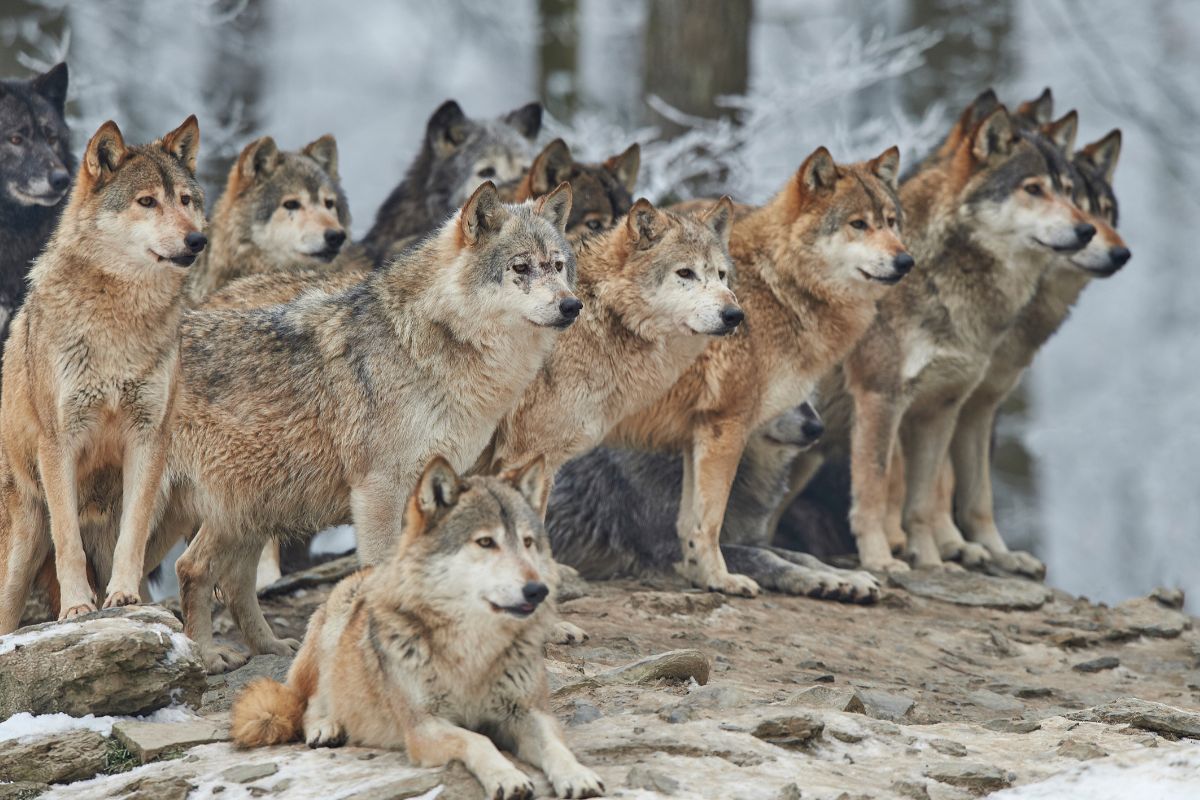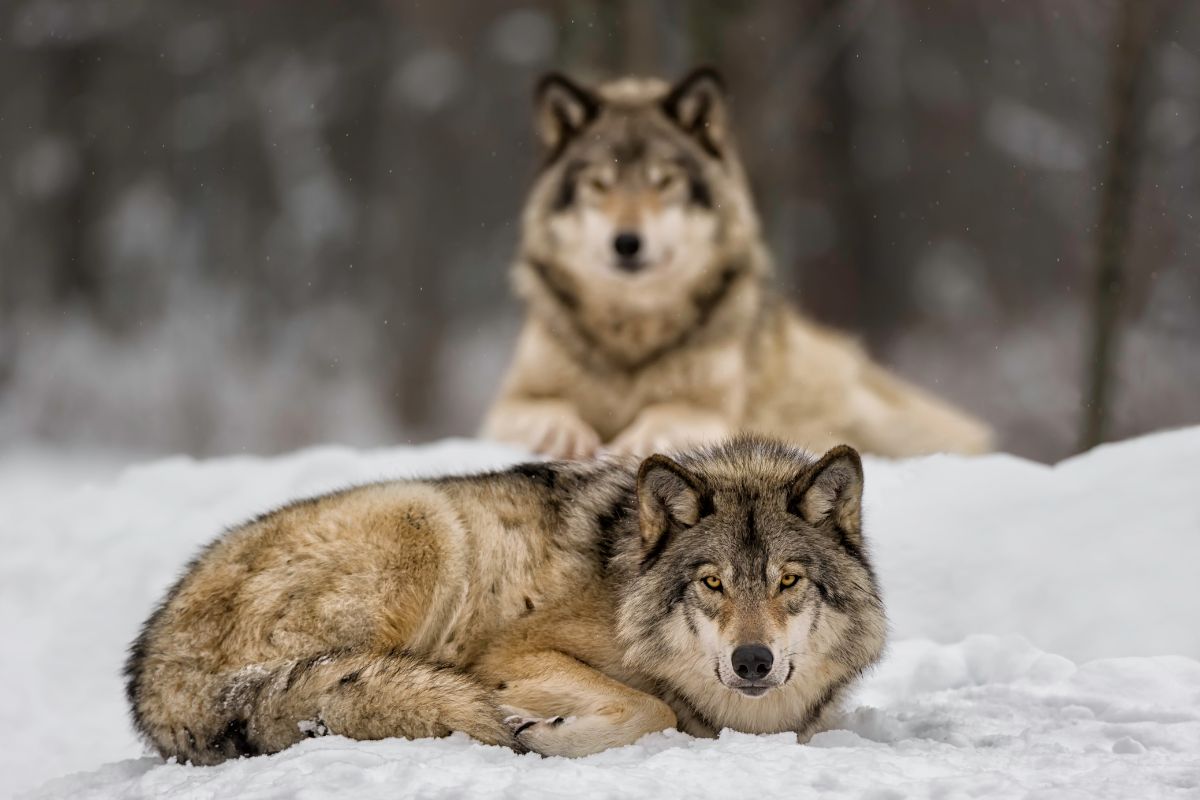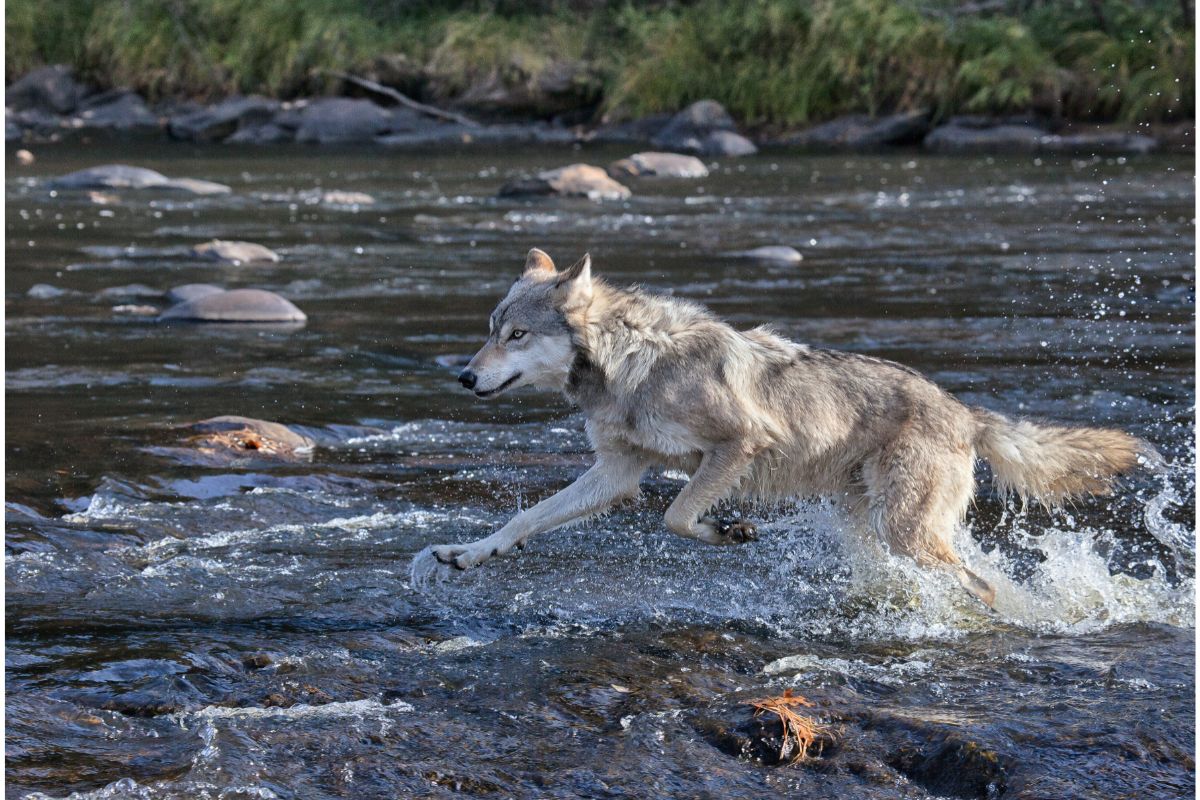Wolves have been forever hunted by humans, in many parts of the world this has been almost to the point of extinction. One of the main reasons (or ways this has been justified) is because of the perceived risk that wolves pose to human life.
Wolves are dangerous animals – right? This is something that has been hardwired into the collective consciousness of humans for centuries.

Take fairy tales like Little Red Riding Hood for example – a story that teaches children the dangers of straying, with a large wolf as its antagonist.
But how founded are these accusations? Are wolves really that dangerous? If you’re wondering about this, then you’ve come to the right article!
We’re going to be breaking down some reports of wolf attacks from around the world, in an attempt to work out just how dangerous they are to humans.
All About Wolves And Aggression
Wolves are large canid creatures who are predators. This means that they hunt and kill live organisms in order to survive.
They are extremely fast, powerful animals with large jaws and sharp teeth that can easily kill the majority of other creatures that they come into contact with.
Wolves hunt as a pack and are extremely good at working together to create opportunities to take down creatures that are much larger than them. Because of this, wolves rarely show aggression on their own.
They will usually only make kills when they outnumber their opponent or are in grave danger. Wolves are extremely dangerous to animals without much defensive capability, and for this reason, have caused great problems to livestock throughout human history.
One thing to note here is that most animals do not kill outside of preditation. This means that it is very rare for animals to kill in cold blood or for fun.
Wolves in particular almost only act aggressively in order to survive or to protect themselves or other members of their pack. This means that wolf aggression revolves around the situation that they find themselves in.
Human Interaction With Wolves
So let’s say you’re on your own and you come across a singular wolf in the wild. In this case, it’s most likely that the wolf is going to avoid you at all costs. Because of how long humans have hunted wolves, it is hardwired into their DNA to avoid people.
A fight between a human and a wolf is not a sure kill for a wolf, so they are very unlikely to attack you unprovoked.
This changes a little if you were to come across an entire pack of wolves. In this case, providing you are outnumbered and they are hungry enough, there is a possibility that they could attack you for food.
However, the chances of running to a wolf pack alone, and further than this – the chances that they would attack is still extremely small. Wolves very rarely attack things that are bigger and more powerful than they are.
There are even documented reports of an entire wolfpack being hesitant to engage with a bear because of the risk that one poses.
Cases Of Wolves Killing Humans
There are a few cases of wild wolves killing a human being. In the 18-year span between 2002 and 2020, there were only 26 reported fatal attacks from a wolf on a human.
A report from the Norwegian Institute for Nature Research suggested that wolves are very unlikely to attack or harm a human.
It’s worth noting here that 14 of these attacks were due to a wolf being rabid. Rabies is a disease that causes massive degradation of the mental capabilities of a wolf and causes them to become more aggressive than usual.
In these cases, wolves are unable to control their aggression and will attack anything around them.
So then, this leaves 12 cases of wolves attacking humans within an 18-year period.
That is much less than 1 attack per year, and when you consider the number of humans and the number of wolves that will have lived/interacted within that timeframe – the number is extremely small.
Another thing to consider with this report is that the individual circumstances of each case may vary widely.
Some of these attacks could be provoked, and some of these could be due to starvation of wolves, or human intervention into their natural habitat or prey.
Final Thoughts
So to conclude, wolves can attack humans, but unprovoked attacks are extremely rare. Wolves are very scared of humans and will for the most part avoid us if they can.
A lot of the fear of wolves comes from times in history when humans were less able to protect themselves and less understanding of wolves. In the modern age, we tend to recognize wolves as a mostly endangered species that are in dire need of protection.
We hope that this article has helped you to understand some of the behavior and reports around wolves and that you’re now a lot more aware of how dangerous a wolf is.
If you ever encounter a wolf in the wild, the chances are if you leave it alone then it will most likely do the same to you!
- Why are skunks called polecats? - November 16, 2022
- Do Armadillos lay eggs? - November 16, 2022
- Can animals have down syndrome? - October 5, 2022








